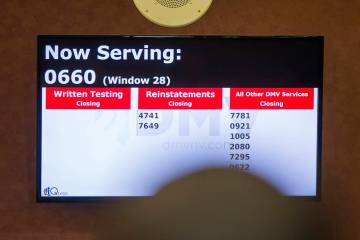EDITORIAL: Punished for what a jury determined they didn’t do
It’s not news that criminal defendants may be sent to jail if a jury finds they have broken the law. But it may surprise many Americans to discover that those same defendants can receive tougher sentences based on charges for which they were found not guilty.
The practice is known as “acquitted conduct sentencing,” and it occurs when a judge adds to a defendant’s sentence “based upon alleged conduct underlying charges for which they were acquitted,” as the Cato Institute describes it. For instance, a 2013 case out of Washington, D.C., involved three men charged with selling crack cocaine. A jury found them guilty of distributing small amounts of the drug but concluded they were not guilty of a more serious conspiracy charge. The judge nevertheless boosted their jail time based on his suspicion that they had also committed a conspiracy.
The injustice here is obvious — and the constitutionality of the practice is highly dubious. Yet the U.S. Supreme Court has never ruled definitively on the matter. And it won’t have to if Congress beats the justices to it.
On Thursday, the Senate Judiciary Committee advanced a package of criminal justice reform measures that includes the Prohibited Punishment of Acquitted Conduct Act. Sponsored by Sen. Dick Durbin, D-Ill., and Sen. Charles Grassley, R-Iowa, the bill would bar judges from using charges on which defendants were acquitted as justification for imposing harsher sentences.
“A bedrock principle of our criminal justice system is that defendants are innocent until proven guilty,” Sen. Grassley noted in a March statement. “The use of acquitted conduct in sentencing punishes people for what they haven’t been convicted of. That’s not acceptable, and it’s not American.”
He’s correct. The practice is also a blunt instrument that prosecutors wield to push plea bargains. “Factoring acquitted conduct into sentencing decisions imposes almost insurmountable pressure on defendants to forgo their constitutional right to a trial by jury,” one federal appeals court judge noted in 2015. “Defendants will face all the risks of conviction, with no practical upside to acquittal unless they run the board and are absolved of all charges.”
The Durbin-Grassley proposal won bipartisan support in committee and now heads to the full Senate. Common-sense criminal justice reform has proven to be one subject on which Democrats and libertarian-oriented Republicans can agree, as evidenced by the landmark First Step Act, which Congress passed in 2018 at the behest of President Donald Trump. Putting the kibosh on acquitted conduct sentencing builds on that important reform and is the right thing to do.




























